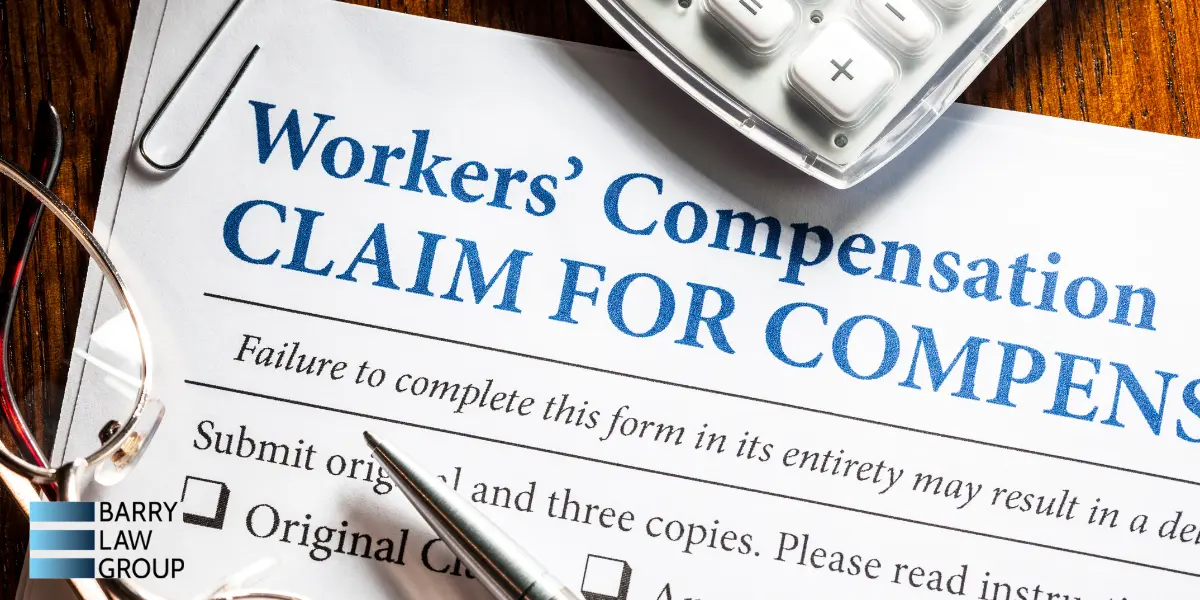Pasadena Longshore Workers’ Compensation Attorney


Pasadena Longshore Workers’ Compensation Lawyer
Being injured at work can be devastating, especially when it happens in the maritime industry. Not only do you have to deal with the physical, financial, and emotional effects of the injury, but you may have to navigate the specific nuances of this field. If this is the case, workers’ compensation may be available for you. A Pasadena longshore workers’ compensation attorney can help you seek it.
Why Choose Barry Law Group?
At Barry Law Group, we understand that having a seasoned lawyer to handle your workers’ compensation claim is crucial. We can provide you with thorough legal services and help your case succeed. Our lawyers have vast knowledge of the law and can guide you through your case to secure the benefits you deserve. We know how a severe injury can disrupt your life, and we can fight to achieve the greatest possible outcome on your behalf.
What Is the Longshore and Harbor Workers’ Compensation Act?
The Longshore and Harbor Workers’ Compensation Act (LHWCA) is a federal law that grants benefits to workers who have been injured while on the job as longshore and harbor workers in the maritime industry. Generally speaking, most maritime workers are covered under this law. Many of these benefits include disability, medical care, and compensation for relevant expenses.
Who Qualifies for LHWCA Benefits?
In order for a worker to qualify for LHWCA benefits, they must meet certain criteria. These criteria are two tests: the “status” test and the “situs” test.
The status test refers to the worker’s job and the nature of their duties. Workers must perform a form of maritime work as part of their job duties. This means that they must perform at least some work pertaining to the water or with transport on the water. For example, an administrative assistant for a maritime business may not qualify, especially if their job is mainly office work.
Generally speaking, the following positions will qualify under this category:
- Longshoremen
- Those who help repair ships
- Those who help build ships
- Ship-breakers
- Other workers who help with loading and unloading ships
- Truck drivers who take shipping containers from ships
Workers Not Covered by the LHWCA
There are also certain workers who are specifically not covered under the Longshore and Harbor Workers’ Compensation Act. These workers include:
- Shipbuilders working on recreational vessels less than 65 feet in length.
- Employees of the marina who are not involved in the renovation, enlargement, or building of the marina other than for ordinary maintenance.
- Leisure boat mechanics or repairers.
- Employees in aquaculture, including those engaged in fish farming.
- Any kind of vessel’s captain and crew, as they are protected by the Jones Act, a separate federal statute.
The second test is the “situs” test, which refers to the employee’s location. This means that the injury must have occurred on navigable waters that are used in the maritime industry or at least very close to them, such as a dock or pier. This also includes areas used for loading or unloading vessels.
Benefits Under the LHWCA
When a maritime worker is injured on the job and qualifies for LHWCA benefits, they are usually covered in the following circumstances:
- Temporary or permanent total disability
- Temporary or permanent partial disability
In addition to receiving mileage and other transportation costs, such as parking and tolls, they are also covered for travel to and from the medical facility. Injured employees are entitled to payment for all reasonable and necessary medical treatment under the LHWCA.
The LHWCA also mandates that the insurance company pay vocational rehabilitation benefits to an injured worker if it is unlikely that they would be able to return to their prior field of employment.
How a Lawyer Can Help
An attorney in Pasadena can assist injured workers with filing claims under the Longshore and Harbor Workers’ Compensation Act (LHWCA), which can sometimes be complex. They can help clients meet reporting and filing deadlines by making sure claims are submitted on time and accurately. In addition, attorneys represent their clients in negotiations or proceedings before the court when disagreements arise over coverage, medical care, and disability compensation.
An attorney can also gather and present the medical and legal proof required to support claims, allowing workers to focus on their recovery while being confident that they will receive all benefits and compensation to which they are legally entitled.
Longshore Workers Compensation FAQs
Q: How Do I File an LHWCA Claim?
A: If you have been injured on the job as a maritime worker, you can file a claim by submitting Form LS-203 to the OWCP. Before doing so, you should report your injuries to your employer by submitting Form LS-201 within 30 days of suffering or discovering your injuries.
Q: Can I Receive Benefits Under Both the LHWCA and Workers’ Compensation?
A: While you could file a claim under both the LHWCA and the state’s workers’ compensation system, you are not allowed to receive double benefits for the same injury. You may be able to file a claim under both acts, but your LHWCA benefits will be reduced according to what you received from the state. However, some states have rules against filing both types of claims.
Q: Does the Jones Act Apply to Longshoremen?
A: The Jones Act does not apply to longshoremen but provides protection to seamen who are injured while working on the seas. It allows injured seamen to file a claim against their employers for personal injury damages due to negligence. These can include medical expenses, hospital stays, surgery, and prescription medications.
Q: What Is the Difference Between the Longshore and Harbor Workers Compensation Act and the Jones Act?
A: The Longshore and Harbor Workers Compensation Act offers a no-fault workers’ compensation program for longshoremen and harbor workers, while the Jones Act allows seamen to file claims of negligence against their employers for injuries incurred on the job. They are both federal laws that offer protections to maritime workers.
Contact Barry Law Group Today
If you’ve been injured in a work-related accident as a longshoreman or harbor worker, you may be entitled to benefits under the LHWCA. A workers’ compensation lawyer can help if your employer’s insurer denies your claim. At Barry Law Group, we can fight for your rights. Contact us today for more information.
Success of Your
Legal Matter.
Barry Law Group is comprised of attorneys and longtime staff members who are committed to the success of your legal matter. The firm understands that for most litigation is uncharted worrisome and often terrifying.


